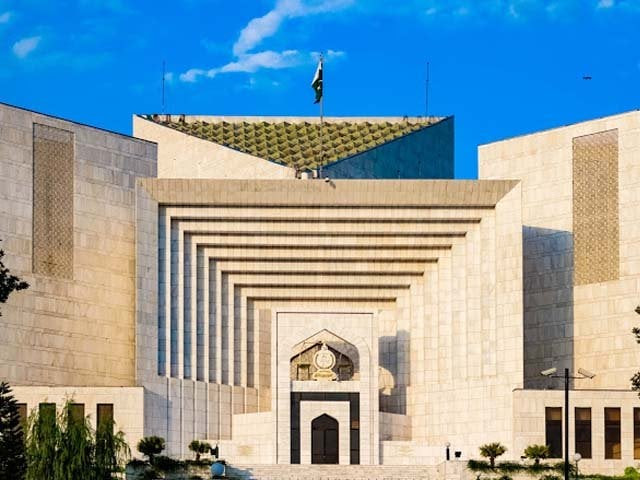“Should not be subject to second-guessing by an unelected federal judiciary, which lacks the background, competence, and expertise to assess public health and is not accountable to the people”.
Consider the above mentioned US decision with that of Pakistan’s exceedingly activist Supreme Court which on May 18, 2020 took an act on its own – a suo moto in legal terms – to challenge the Government of Sindh’s coronavirus restriction which temporarily prohibited the reopening of shopping centres in the province. The Pakistan Supreme Court ruled that it finds “no valid reason” for keeping shopping malls closed. The US case concerned reopening religious places whereas the case in Pakistan’s top court concerned reopening shopping malls. Though the two cases were slightly different factually, they were similar in the sense that both tested the propensity of the judiciaries to contravene the doctrine of separation of powers.
The separation of powers doctrine stipulates that principal institutions of a state – executive, legislative, and judiciary – should exercise their constitutionally defined duties independent from each other. Meaning, each branch of government should not take any action which is in the domain of the other.
Decisions regarding application and lifting of lockdown measures lie primarily in the domain of the executive branch of government. Therefore, by abstaining from interfering with California’s lockdown policy, the US Supreme Court manifestly respected the doctrine of separation of powers. The Pakistan Supreme Court did exactly the opposite. By ‘second-guessing’ the Sindh Government’s lockdown policy, it injected itself into the political arena, and thus failed this separation of powers test.
US Chief Justice Roberts acknowledged that public officials should have an “especially broad” scope of freedom for action when making decisions tackling a health crisis. In stark contrast, Chief Justice of Pakistan (CJP) Gulzar Ahmed showed total disregard for the freedom Sindh Government officials ought to have in shaping their province’s lockdown policy. This is inconceivable given the public entrusts – by democratically electing – government officials to make decisions in their best interests, not the judiciary.
In raising the question that if Punjab can reopen shopping malls “why the similar cannot be done by the Province of Sindh”, the CJP appeared ignorant of the 18th Amendment of Pakistan’s constitution. The provision which grants each province autonomy in its policy decisions. One should ask the CJP, since when has Punjab become the standard that all other provinces must adhere to? The greater size of a province does not mean its policies are more legitimate compared to the policies of smaller provinces.
Without seeking the view of health experts, CJP Ahmed declared that Covid-19 “apparently is not a pandemic in Pakistan”. The top judge played down the threat of the novel disease based on the low death rate at the time of handing down the judgment. Contrastingly, medical experts believe that the low death rate does not rule out the potential threat of the disease. They explain that the low death rate is likely to be due to the slow speed of the disease or because the country is in the earlier stages of the pandemic.
Statistics from Government of Pakistan show that on May 18th – the day the Supreme Court gave their judgment – there was an increase of 1,841 new coronavirus cases in Pakistan. On June 6th this figure was 4,960. This mounting surge in daily cases is undoubtedly a direct consequence of easing lockdown measures. This reinforces that the CJP completely misjudged the severity of the disease, by substituting his judgment for that of health experts. Which is not the role of judges as US Chief Justice Roberts correctly remarked in his judgment.
The fact that the disease has not even peaked in Pakistan certainly means that the devastation is yet to unfold. Alongside the federal government, the Supreme Court has perpetrated lifting the lockdown prematurely. But whilst the federal government can be held accountable at the next general election for this blunder, the apex court cannot.
This is not the first time the judiciary has overstepped its constitutional boundary in Pakistan. Former chief justice Saqib Nisar also acted in a way that transcended judicial authority when he directed the federal government to create a crowdfunding account to aid the construction of dams in Pakistan. CJP Ahmed by initiating proceedings on a matter which does not concern the Supreme Court has followed in his predecessor’s footsteps. In fact, CJP Ahmed has gone a step further by questioning the government’s allocation of public resources to combat the pandemic. Another matter which only elected Governments are constitutionally qualified to decide.
We see an unconstitutional trend being set by the very institution which exists as the guardian of the constitution. Any public must not tolerate a judiciary making decisions for which they cannot be held accountable for. Instead of making chief justices household names in the country, Pakistan’s citizenry must condemn politically activist endeavours of its judiciary. Only then can the integrity of the judiciary be maintained, and the rule of law restored.
And as for the benches of Pakistan’s judiciary, they should carefully read the US Supreme Court’s judgment, so they are reminded of their fundamental duty. That is to respect and adhere to the doctrine of separation of powers when applying the law.



COMMENTS
Comments are moderated and generally will be posted if they are on-topic and not abusive.
For more information, please see our Comments FAQ